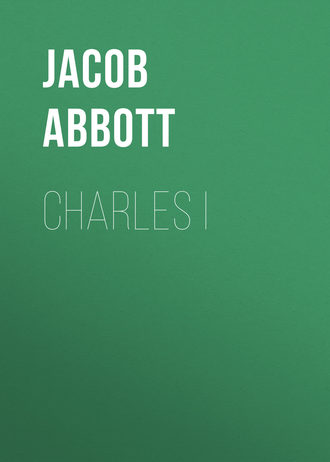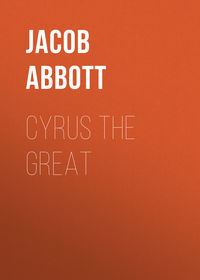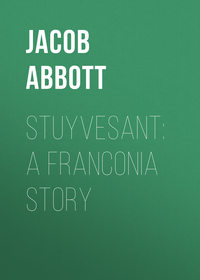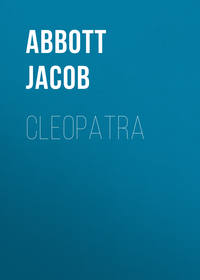
Charles I
Buckingham's reckless conduct.
Thus things went on from bad to worse, and from worse to worse again; the chief cause of the difficulties, in almost all cases, being traceable to Buckingham's reckless and arbitrary conduct. He was continually doing something in the pursuit of his own ends, by the rash and heedless exercise of the vast powers committed to him, to make extensive and irreparable mischief. At one time he ordered a part of the fleet over to the coast of France, to enter the French service, the sailors expecting that they were to be employed against the Spaniards. They found, however, that, instead of going against the Spaniards, they were to be sent to Rochelle. Rochelle was a town in France in possession of the Protestants, and the King of France wished to subdue them. The sailors sent a remonstrance to their commander, begging not to be forced to fight against their brother Protestants. This remonstrance was, in form, what is called a Round Robin.
The Round Robin.
Return of the English fleet.
In a Round Robin a circle is drawn, the petition or remonstrance is written within it, and the names are written all around it, to prevent any one's having to take the responsibility of being the first signer. When the commander of the fleet received the Round Robin, instead of being offended, he inquired into the facts, and finding that the case was really as the Round Robin represented it, he broke away from the French command and returned to England. He said he would rather be hanged in England for disobeying orders than to fight against the Protestants of France.
The officers and men desert.
Buckingham might have known that such a spirit as this in Englishmen was not to be trifled with. But he knew nothing, and thought of nothing, except that he wished to please and gratify the French government. When the fleet, therefore, arrived in England, he peremptorily ordered it back, and he resorted to all sorts of pretexts and misrepresentations of the facts to persuade the officers and men that they were not to be employed against the Protestants. The fleet accordingly went back, and when they arrived, they found that Buckingham had deceived them. They were ordered to Rochelle. One of the ships broke away and returned to England. The officers and men deserted from the other ships and got home. The whole armament was disorganized, and the English people, who took sides with the sailors, were extremely exasperated against Buckingham for his blind and blundering recklessness, and against the king for giving such a man the power to do his mischief on such an extensive scale.
Expedition to Spain.
Buckingham's egregious folly.
The expedition ends in disaster.
At another time the duke and the king contrived to fit out a fleet of eighty sail to make a descent upon the coast of Spain. It caused them great trouble to get the funds for this expedition, as they had to collect them, in a great measure, by various methods depending on the king's prerogative, and not by authority of Parliament. Thus the whole country were dissatisfied and discontented in respect to the fleet before it was ready to sail. Then, as if this was not enough, Buckingham overlooked all the officers in the navy in selecting a commander, and put an officer of the army in charge of it; a man whose whole experience had been acquired in wars on the land. The country thought that Buckingham ought to have taken the command himself, as lord high admiral; and if not, that he ought to have selected his commander from the ranks of the service employed. Thus the fleet set off on the expedition, all on board burning with indignation against the arbitrary and absurd management of the favorite. The result of the expedition was also extremely disastrous. They had an excellent opportunity to attack a number of ships, which would have made a very rich prize; but the soldier-commander either did not know, or did not dare to do, his duty. He finally, however, effected a landing, and took a castle, but the sailors found a great store of wine there, and went to drinking and carousing, breaking through all discipline. The commander had to get them on board again immediately, and come away. Then he conceived the plan of going to intercept what were called the Spanish galleons, which were ships employed to bring home silver from the mines in America, which the Spaniards then possessed. On further thoughts he concluded to give up this idea, on account of the plague, which, as he said, broke out in his ships. So he came back to England with his fleet disorganized, demoralized, and crippled, and covered with military disgrace. The people of England charged all this to Buckingham. Still the king persisted in retaining him. It was his prerogative to do so.
Buckingham's quarrel with Richelieu.
He resolves on war.
After a while Buckingham got into a personal quarrel with Richelieu, who was the leading manager of the French government, and he resolved that England should make war upon France. To alter the whole political position of such an empire as that of Great Britain, in respect to peace and war, and to change such a nation as France from a friend to an enemy, would seem to be quite an undertaking for a single man to attempt, and that, too, without having any reason whatever to assign, except a personal quarrel with a minister about a love affair. But so it was. Buckingham undertook it. It was the king's prerogative to make peace or war, and Buckingham ruled the king.
The French servants dismissed.
War declared against France.
He contrived various ways of fomenting ill will. One was, to alienate the mind of the king from the queen. He represented to him that the queen's French servants were fast becoming very disrespectful and insolent in their treatment of him, and finally persuaded him to send them all home. So the king went one day to Somerset House, which was the queen's residence – for it is often the custom in high life in Europe for the husband and wife to have separate establishments – and requested her to summon her French servants into his presence, and when they were assembled, he told them that he had concluded to send them all home to France. Some of them, he said, had acted properly enough, but others had been rude and forward, and that he had decided it best to send them all home. The French king, on hearing of this, seized a hundred and twenty English ships lying in his harbors in retaliation of this act, which he said was a palpable violation of the marriage contract, as it certainly was. Upon this the king declared war against France. He did not ask Parliament to act in this case at all. There was no Parliament. Parliament had been dissolved in a fit of displeasure. The whole affair was an exercise of the royal prerogative. Nor did the king now call a Parliament to provide means for carrying on the war, but set his Privy Council to devise modes of doing it, through this same prerogative.
Expedition to France abortive.
The attempts to raise money in these ways made great trouble. The people resisted, and interposed all possible difficulties. However some funds were raised, and a fleet of a hundred sail, and an army of seven thousand men, were got together. Buckingham undertook the command of this expedition himself, as there had been so much dissatisfaction with his appointment of a commander to the other. It resulted just as was to be expected in the case of seven thousand men, and a hundred ships, afloat on the swelling surges of the English Channel, under the command of vanity, recklessness, and folly. The duke came back to England in three months, bringing home one third of his force. The rest had been lost, without accomplishing any thing. The measure of public indignation against Buckingham was now full.
Another projected.
Assassination of Buckingham.
Buckingham himself walked as loftily and proudly as ever. He equipped another fleet, and was preparing to set sail in it himself, as commander again. He went to Portsmouth, accordingly, for this purpose, Portsmouth being the great naval station then, as now, on the southern coast of England. Here a man named Felton, who had been an officer under the duke in the former expedition, and who had been extremely exasperated against him on account of some of his management there, and who had since found how universal was the detestation of him in England, resolved to rid the country of such a curse at once. He accordingly took his station in the passage-way of the house where Buckingham was, armed with a knife. Buckingham came out, talking with some Frenchmen in an angry manner, having had some dispute with them, when Felton thrust the knife into his side as he passed, and, leaving it in the wound, walked away, no one having noticed who did the deed. Buckingham pulled out the knife, fell down, and died. The bystanders were going to seize one of the Frenchmen, when Felton advanced and said, "I am the man; you are to arrest me; let no one suffer that is innocent." He was taken. They found a paper in his hat, saying that he was going to destroy the duke, and that he could not sacrifice his life in a nobler cause than by delivering his country from so great an enemy.
The king not sorry.
King Charles was four miles off at this time. They carried him the news. He did not appear at all concerned or troubled, but only directed that the murderer – he ought to have said, perhaps, the executioner– should be secured, and that the fleet should proceed to sail. He also ordered the treasurer to make arrangements for a splendid funeral.
Buckingham's monument the universal execration of his countrymen.
The treasurer said, in reply, that a funeral would only be a temporary show, and that he could hereafter erect a monument at half the cost, which would be a much more lasting memorial. Charles acceded. Afterward, when Charles spoke to him about the monument, the treasurer replied, What would the world say if your majesty were to build a monument to the Duke before you erect one for your father? So the plan was abandoned, and Buckingham had no other monument than the universal detestation of his countrymen.
Chapter V.
The King and his Prerogative
1628-1636Difficulty in raising funds.
The great difficulty in governing without a Parliament was the raising of funds. By the old customs and laws of the realm, a tax upon the people could only be levied by the action of the House of Commons; and the great object of the king and council during Buckingham's life, in summoning Parliaments from time to time, was to get their aid in this respect. But as Charles found that one Parliament after another withheld the grants, and spent their time in complaining of his government, he would dissolve them, successively, after exhausting all possible means of bringing them to a compliance with his will. He would then be thrown upon his own resources.
The king's resources.
Modes of raising money.
Parliaments abandoned.
The king had some resources of his own. These were certain estates, and lands, and other property, in various parts of the country, which belonged to the crown, the income of which the king could appropriate. But the amount which could be derived from this source was very small. Then there were certain other modes of raising money, which had been resorted to by former monarchs, in emergencies, at distant intervals, but still in instances so numerous that the king considered precedents enough had been established to make the power to resort to these modes a part of the prerogative of the crown. The people, however, considered these acts of former monarchs as irregularities or usurpations. They denied the king's right to resort to these methods, and they threw so many difficulties in the way of the execution of his plans, that finally he would call another Parliament, and make new efforts to lead them to conform to his will. The more the experiment was tried, however, the worse it succeeded; and at last the king determined to give up the idea of Parliaments altogether, and to compel the people to submit to his plans of raising money without them.
The government attaches the property of a member of Parliament.
The final dissolution of Parliament, by which Charles entered upon his new plan of government, was attended with some resistance, and the affair made great difficulty. It seems that one of the members, a certain Mr. Rolls, had had some of his goods seized for payment of some of the king's irregular taxes, which he had refused to pay willingly. Now it had always been considered the law of the land in England, that the person and the property of a member of Parliament were sacred during the session, on the ground that while he was giving his attendance at a council meeting called by his sovereign, he ought to be protected from molestation on the part either of his fellow-subjects or his sovereign, in his person and in his property. The House of Commons considered, therefore, the seizure of the goods of one of the members of the body as a breach of their privilege, and took up the subject with a view to punish the officers who acted. The king sent a message immediately to the House, while they were debating the subject, saying that the officer acted, in seizing the goods, in obedience to his own direct command. This produced great excitement and long debates. The king, by taking the responsibility of the seizure upon himself, seemed to bid the House defiance. They brought up this question: "Whether the seizing of Mr. Rolls's goods was not a breach of privilege?" When the time came for a decision, the speaker, that is, the presiding officer, refused to put the question to vote. He said he had been commanded by the king not to do it! The House were indignant, and immediately adjourned for two days, probably for the purpose of considering, and perhaps consulting their constituents on what they were to do in so extraordinary an emergency as the king's coming into their own body and interfering with the functions of one of their own proper officers.
Confusion in the House of Commons.
Resolutions.
The Commons refuse to admit the king's officers.
They met on the day to which they had adjourned, prepared to insist on the speaker's putting the question. But he, immediately on the House coming to order, said that he had received the king's command to adjourn the House for a week, and to put no question whatever. He was then about to leave the chair, but two of the members advanced to him and held him in his place, while they read some resolutions which had been prepared. There was great confusion and clamor. Some insisted that the House was adjourned, some were determined to pass the resolutions. The resolutions were very decided. They declared that whoever should counsel or advise the laying of taxes not granted by Parliament, or be an actor or instrument in collecting them, should be accounted an innovator, and a capital enemy to the kingdom and Commonwealth. And also, that if any person whatever should voluntarily pay such taxes, he should be counted a capital enemy also. These resolutions were read in the midst of great uproar. The king was informed of the facts, and sent for the sergeant of the House – one of the highest officers – but the members locked the door, and would not let the sergeant go. Then the king sent one of his own officers to the House with a message. The members kept the door locked, and would not let him in until they had disposed of the resolutions. Then the House adjourned for a week.
Members imprisoned.
The next day, several of the leading members who were supposed to have been active in these proceedings were summoned to appear before the council. They refused to answer out of Parliament for what was said and done by them in Parliament. The council sent them to prison in the Tower.
Dissolution of Parliament.
The king in the House of Lords.
The week passed away, and the time for the reassembling of the Houses arrived. It had been known, during the week, that the king had determined on dissolving Parliament. It is usual, in dissolving a Parliament, for the sovereign not to appear in person, but to send his message of dissolution by some person commissioned to deliver it. This is called dissolving the House by commission. The dissolution is always declared in the House of Lords, the Commons being summoned to attend. In this case, however, the king attended in person. He was dressed magnificently in his royal robes, and wore his crown. He would not deign, however, to send for the Commons. He entered the House of Peers, and took his seat upon the throne. Several of the Commons, however, came in of their own accord, and stood below the bar, at the usual place assigned them. The king then rose and read the following speech. The antiquity of the language gives it an air of quaintness now which it did not possess then.
The king's speech on dissolving Parliament.
"My Lords, – I never came here upon so unpleasant an occasion, it being the Dissolution of a Parliament. Therefore Men may have some cause to wonder why I should not rather chuse to do this by Commission, it being a general Maxim of Kings to leave harsh Commands to their Ministers, Themselves only executing pleasing things. Yet considering that Justice as well consists in Reward and Praise of Virtue as Punishing of Vice, I thought it necessary to come here to-day, and to declare to you and all the World, that it was merely the undutiful and seditious Carriage in the Lower House that hath made the dissolution of this Parliament. And you, my Lords, are so far from being any Causers of it, that I take as much comfort in your dutiful Demeanour, as I am justly distasted with their Proceedings. Yet, to avoid their Mistakings, let me tell you, that it is so far from me to adjudge all the House alike guilty, that I know there are many there as dutiful subjects as any in the World it being but some few Vipers among them that did cast this mist of Undutifulness over most of their Eyes. Yet to say Truth, there was good Number there that could not be infected with this Contagion.
"To conclude, As those Vipers must look for their Reward of Punishment, so you, my Lords, may justly expect from me that Favor and Protection that a good King oweth to his loving and faithful Nobility. And now, my Lord Keeper, do what I have commanded you."
Then the lord keeper pronounced the Parliament dissolved. The lord keeper was the keeper of the great seal, one of the highest officers of the crown.
The king resolves to do without Parliaments.
Of course this affair produced a fever of excitement against the king throughout the whole realm. This excitement was kept up and increased by the trials of the members of Parliament who had been imprisoned. The courts decided against them, and they were sentenced to long imprisonment and to heavy fines. The king now determined to do without Parliaments entirely; and, of course, he had to raise money by his royal prerogative altogether, as he had done, in fact, before, a great deal, during the intervals between the successive Parliaments. It will not be very entertaining, but it will be very useful to the reader to peruse carefully some account of the principal methods resorted to by the king. In order, however, to diminish the necessity for money as much as possible, the king prepared to make peace with France and Spain; and as they, as well as England, were exhausted with the wars, this was readily effected.
Forced loans.
One of the resorts adopted by the king was to a system of loans, as they were called, though these loans differed from those made by governments at the present day, in being apportioned upon the whole community according to their liability to taxation, and in being made, in some respects, compulsory. The loan was not to be absolutely collected by force, but all were expected to lend, and if any refused, they were to be required to make oath that they would not tell any body else that they had refused, in order that the influence of their example might not operate upon others. Those who did refuse were to be reported to the government. The officers appointed to collect these loans were charged not to make unnecessary difficulty, but to do all in their power to induce the people to contribute freely and willingly. This plan had been before adopted, in the time of Buckingham, but it met with little success.
Monopolies of the necessaries of life.
Another plan which was resorted to was the granting of what was called monopolies: that is, the government would select some important and necessary articles in general use, and give the exclusive right of manufacturing them to certain persons, on their paying a part of the profits to the government. Soap was one of the articles thus chosen. The exclusive right to manufacture it was given to a company, on their paying for it. So with leather, salt, and various other things. These persons, when they once possessed the exclusive right to manufacture an article which the people must use, would abuse their power by deteriorating the article, or charging enormous prices. Nothing prevented their doing this, as they had no competition. The effect was, that the people were injured much more than the government was benefited. The plan of granting such monopolies by governments is now universally odious.
Tonnage and poundage.
Another method of taxation was what was called tonnage and poundage. This was an ancient tax, assessed on merchandise brought into the country in ships, like the duties now collected at our custom-houses. It was called tonnage and poundage because the merchandise on which it was assessed was reckoned by weight, viz., the ton and the pound. A former king, Edward III., first assessed it to raise money to suppress piracy on the seas. He said it was reasonable that the merchandise protected should pay the expense of the protection, and in proper proportion. The Parliament in that day opposed this tax. They did not object to the tax itself, but to the king's assessing it by his own authority. However, they granted it themselves afterward, and it was regularly collected. Subsequent Parliaments had granted it, and generally made the law, once for all, to continue in force during the life of the monarch. When Charles commenced his reign, the Peers were for renewing the law as usual, to continue throughout his reign. The Commons desired to enact the law only for a year at a time, so as to keep the power in their own hands. The two houses thus disagreed, and nothing was done. The king then went on to collect the tax without any authority except his own prerogative.
Ship money.
Origin of these taxes.
Another mode of levying money adopted by the king was what was called ship money. This was a plan for raising a navy by making every town contribute a certain number of ships, or the money necessary to build them. It originated in ancient times, and was at first confined to seaport towns which had ships. These towns were required to furnish them for the king's service, sometimes to be paid for by the king, at other times by the country, and at other times not to be paid for at all. Charles revived this plan, extending it to the whole country; a tax was assessed on all the towns, each one being required to furnish money enough for a certain number of ships. The number at one time required of the city of London was twenty.
John Hampden.
He refuses to pay ship money.
There was one man who made his name very celebrated then, and it has continued very celebrated since, by his refusal to pay his ship money, and by his long and determined contest with the government in regard to it, in the courts. His name was John Hampden. He was a man of fortune and high character. His tax for ship money was only twenty shillings, but he declared that he would not pay it without a trial. The king had previously obtained the opinion of the judges that he had a right, in case of necessity, to assess and collect the ship money, and Hampden knew, therefore, that the decision would certainly, in the end, be against him. He knew, however, that the attention of the whole country would be attracted to the trial, and that the arguments which he should offer, to prove that the act of collecting such a tax on the part of the king's government was illegal and tyrannical, would be spread before the country, and would make a great impression, although they certainly would not alter the opinion of the judges, who, holding their offices by the king's appointment, were strongly inclined to take his side.









